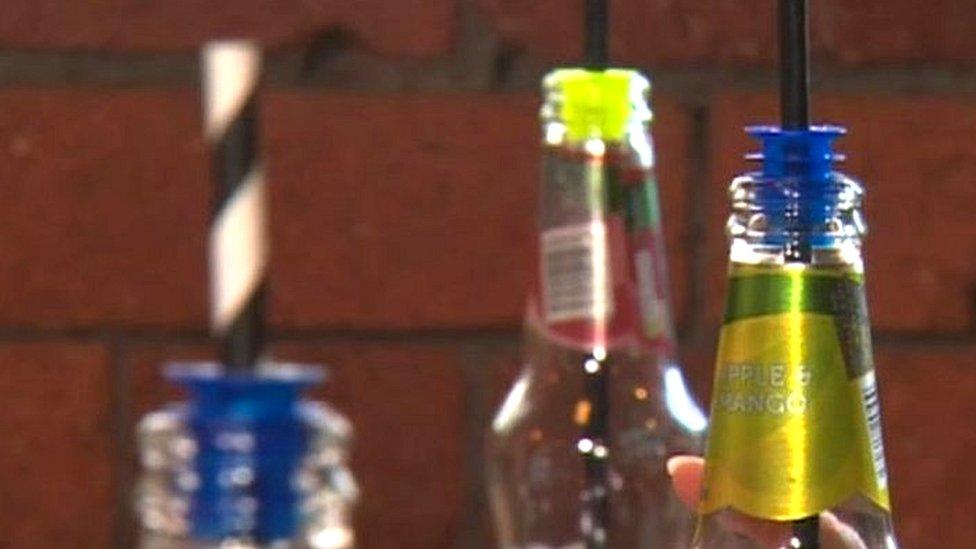Needle spiking: Birmingham women push for criminalisation
- Published

Two women have started a campaign to raise awareness of needle spiking - the act in which victims are unwittingly injected with incapacitating chemicals.
An investigation by MPs earlier this year found victims were often brushed off as having "one too many" drinks, leaving the practice under-reported.
Daz Scott and Martha Harrison want it to be made a criminal offence in its own right and await government updates.
The pair have created a short film to highlight the dangers people face.
The women, from Birmingham, have received funding through the city's Commonwealth Games legacy project - Gen 22 - which helps pay for social action schemes by young, local people, Ms Scott says.
"They funded us to create this short film which is about spiking via injection which for us is a way of empowering our community to say no to victim blaming and reclaim that conversation and do it in a way that makes sense to us and is a way for us to raise awareness about it," she added.
While puncturing someone's skin may amount to physical assault, and the Sexual Offences Act 2003 states it is an offence to administer a substance to a person with intent to overpower them to enable sexual activity, the act of needle spiking is not currently an offence in its own right.
There were 32 suspected needle spikings in the West Midlands Police force area during a four-month period last year, compared to none in the previous four years, police figures have shown.
Ms Harrison said she was appalled to hear about the number of cases and found it "absolutely ridiculous" it was not a separate, standalone criminal offence.
Ms Harrison said: "When we were doing our own research about it we found that according to police only 8% of spiking cases are actually reported and for us that highlighted how little this case is addressed in our world and how much it should be talked about because it is still affecting so many people."
She said they knew of cases of men being spiked, albeit in smaller numbers, but their project focussed on women and LGBT communities.
West Midlands Police said there was a national approach to both drink and needle spiking co-ordinated by the National Police Chiefs' Council (NPCC).
The NPCC is working closely with forces, Regional Organised Crime Units, law enforcement partners and the night-time industry to improve how they share information with each other, it says.
It adds it has an improved intelligence picture of the nature and scale of the acts.
West Midlands Police has more information on the Safer Nights section of its website. , external

Follow BBC West Midlands on Facebook, external, Twitter, external and Instagram, external. Send your story ideas to: newsonline.westmidlands@bbc.co.uk, external
Related topics
- Published26 April 2022

- Published17 December 2021

- Published22 October 2021

- Published20 October 2021
